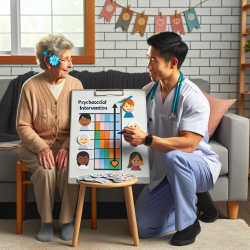Introduction
The COVID-19 pandemic has starkly highlighted health inequities, particularly among racially and ethnically minoritized communities. Despite being disproportionately affected, these groups have lower vaccination rates due to hesitancy and access barriers. The research article "Rapid Implementation of a Community–Academic Partnership Model to Promote COVID-19 Vaccine Equity within Racially and Ethnically Minoritized Communities" offers a compelling model for addressing these challenges.
Understanding the Community–Academic Partnership Model
The study conducted by Loma Linda University researchers in San Bernardino County, CA, utilized a three-tiered approach to increase vaccination rates among non-Hispanic Black and Hispanic/Latino communities. This model emphasizes the importance of collaboration between academic institutions and community organizations, including faith-based entities, to build trust and facilitate vaccine uptake.
Key Components of the Model
- Engagement of Community Leaders: The first tier involved partnering with faith and community leaders to identify barriers and develop strategies for vaccine distribution. These leaders played a crucial role in building trust and disseminating accurate information about the vaccines.
- Educational Webinars: The second tier consisted of hosting webinars led by racially concordant faculty members. These sessions addressed vaccine hesitancy by providing clear, factual information about the safety and efficacy of the vaccines, tailored to the concerns of the communities.
- Low-Barrier Vaccination Clinics: The final tier involved setting up accessible vaccination clinics at community sites, such as churches, to reduce logistical barriers. These clinics were staffed by racially concordant healthcare professionals to further build trust and encourage participation.
Results and Implications
The implementation of this model resulted in the administration of over 1700 vaccine doses within the targeted communities. The approach demonstrated higher vaccination rates compared to traditional methods, underscoring the effectiveness of community-engaged strategies.
For practitioners, this model offers a blueprint for improving health outcomes in minoritized communities. By fostering partnerships with trusted community leaders and providing culturally sensitive education, practitioners can address vaccine hesitancy and improve access to healthcare services.
Encouraging Further Research
While the study provides valuable insights, it also highlights the need for further research to tailor strategies for different communities and expand the model to other health initiatives. Practitioners are encouraged to explore similar community-based approaches and contribute to the growing body of research on health equity.
To read the original research paper, please follow this link: Rapid Implementation of a Community–Academic Partnership Model to Promote COVID-19 Vaccine Equity within Racially and Ethnically Minoritized Communities.










